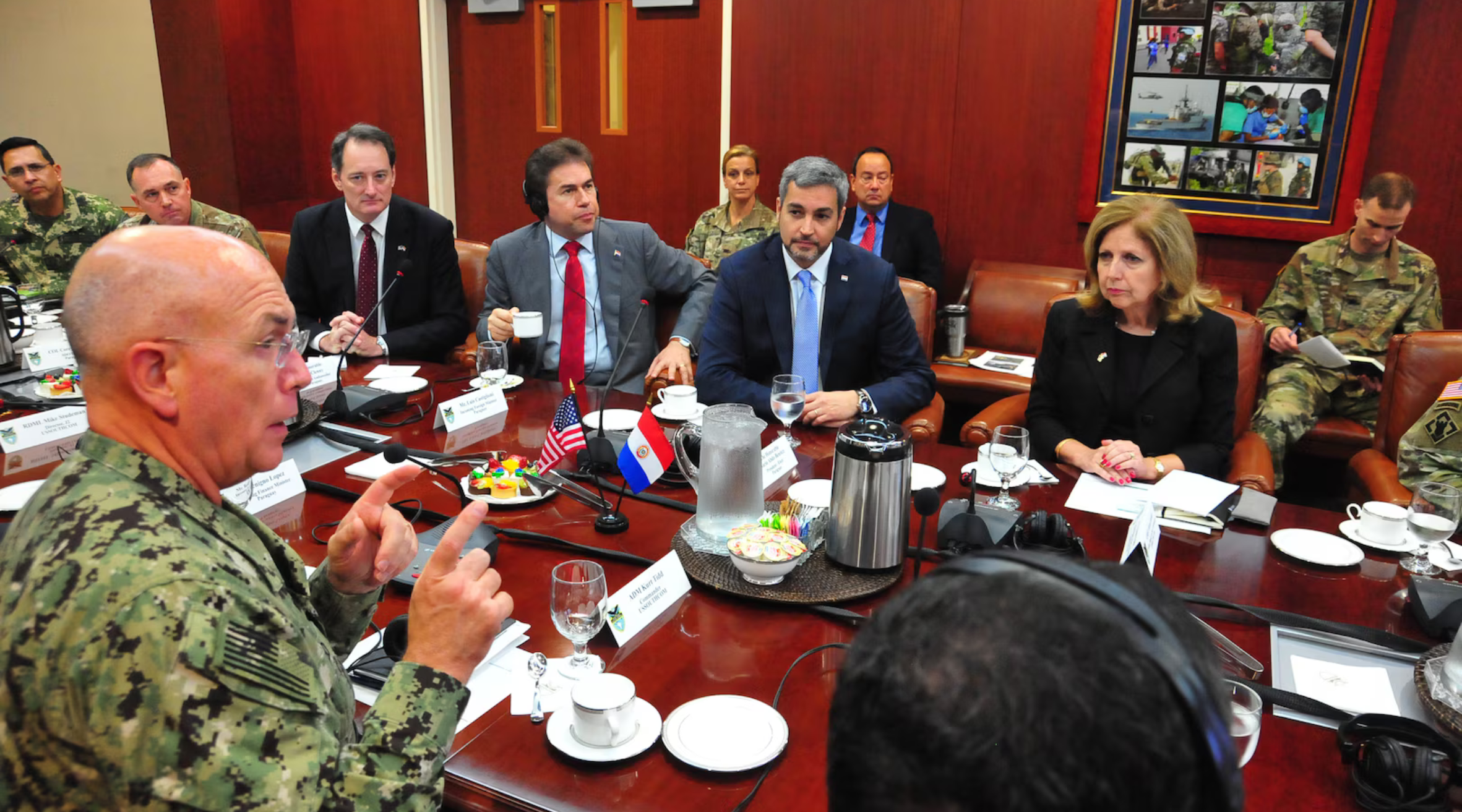Paraguay (Transatlantic Today)— In an important step to strengthen bilateral relations, Paraguayan President Santiago Peña, in his capacity as Commander-in-Chief of the Paraguayan Armed Forces, met with General Laura Richardson, Commander of the US Southern Command, in Washington, DC. Regional security issues and advances in cooperation promoted by both governments in technological matters, and common plans in the fight against drug trafficking and transnational crimes were discussed. In addition, he highlighted his support for the Paraguayan security forces, considered strategic allies in the region.
Support for Paraguayan Security Forces
During the discussions, President Peña emphasized the strategic alliance between the two nations, particularly in enhancing the capabilities of Paraguayan security forces. “We work together for the security of Paraguay and the region!” Peña declared on social media. The meeting also included Daniel Erikson, security advisor for Latin America, Chris Dodd, advisor for Latin American Affairs to President Joe Biden, and Marc Ostfield, the US ambassador to Paraguay.
Delegation and Additional Discussions
The Paraguayan delegation included Foreign Minister Rubén Ramírez Lezcano, Minister of Industry and Commerce Javier Giménez, and Minister of Information and Communication Technologies Gustavo Villate. The discussions also included Paraguay’s foreign policy, such as its support for Taiwan, attitude on Israel, and advocacy for a peaceful conclusion to the Russia-Ukraine conflict. Foreign Minister Lezcano emphasized these remarks in a statement issued following the meeting.
New Military Detachment in Paraguay
Ambassador Ostfield’s recent involvement included the establishment of a new military detachment in Canindeyú, northeast Paraguay. This initiative aims to combat the influence of international criminal organizations such as Brazil’s First Capital Command and Red Command. The detachment’s operations are part of the broader efforts by the Paraguayan Army’s Joint Task Force.
Commitment to Hemispheric Security
According to Zona-militar, president Peña addressed Hemispheric Security, stressing Paraguay’s commitment to combating transnational crime. Pena emphasized the difficulties posed by drug trafficking and border violence, as well as the threat of terrorism. Peña asserted that the success of recent operations resulted in the confiscation of almost 2,000 illegal weapons.
Efforts Against Security Threats
Looking ahead, President Peña reiterated Paraguay’s commitment to collaborative efforts in addressing security threats, particularly in the Triple Border area shared with Argentina and Brazil. He stressed the importance of joint operations and international cooperation in combating these issues.
Anti-Drug Trafficking Course
In related developments, the Paraguayan Navy completed a basic course on combating drug trafficking and terrorism. The course, taught by instructors from the Colombian Marine Corps and sponsored by the US Defense Cooperation Office’s USCAP program, concluded with a ceremony led by Admiral Silvio Vargas, commander of the Paraguayan Navy. The event marked the certification of marine infantry command members who completed the training.


























